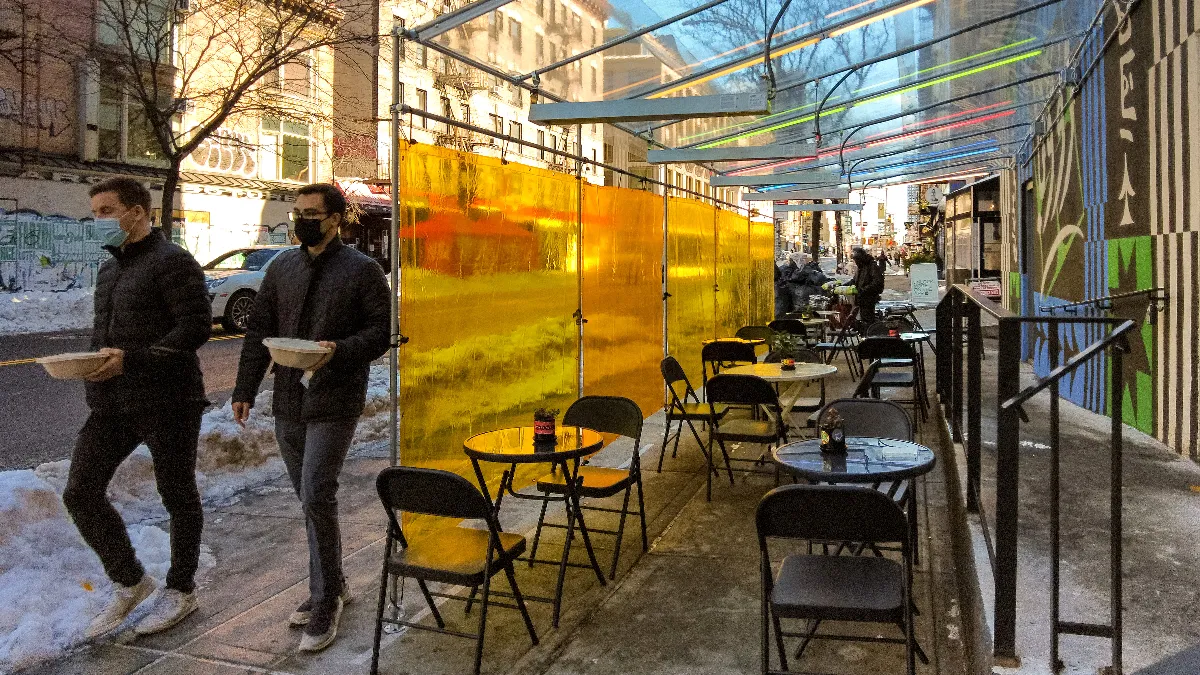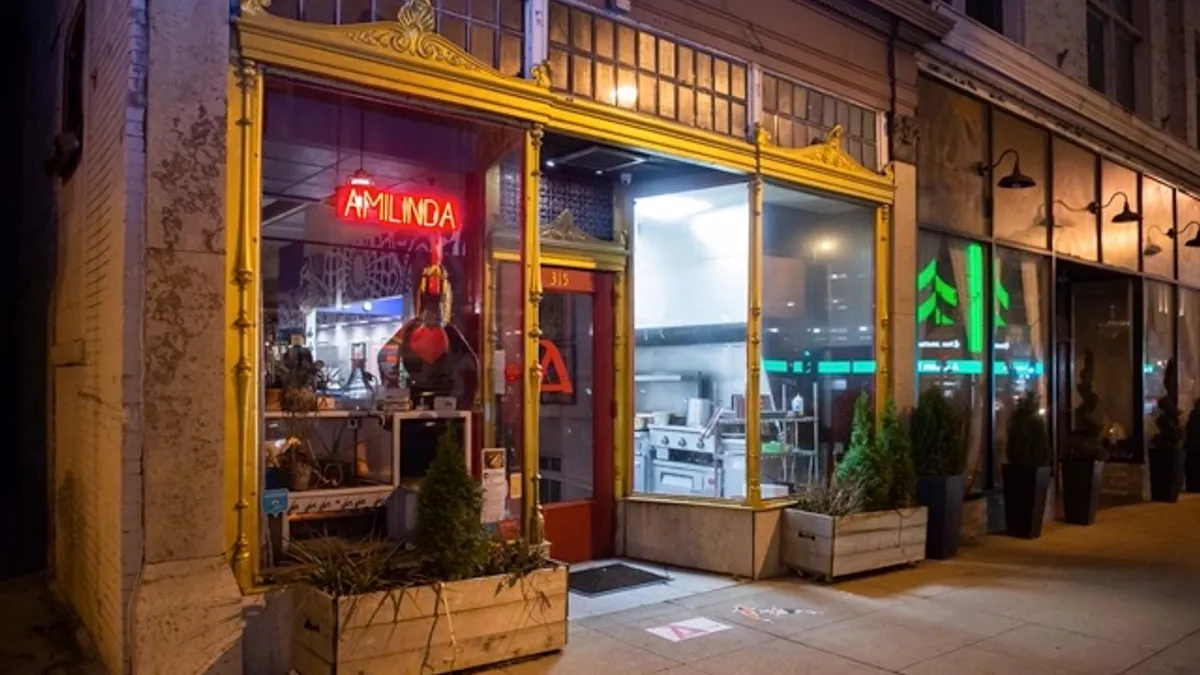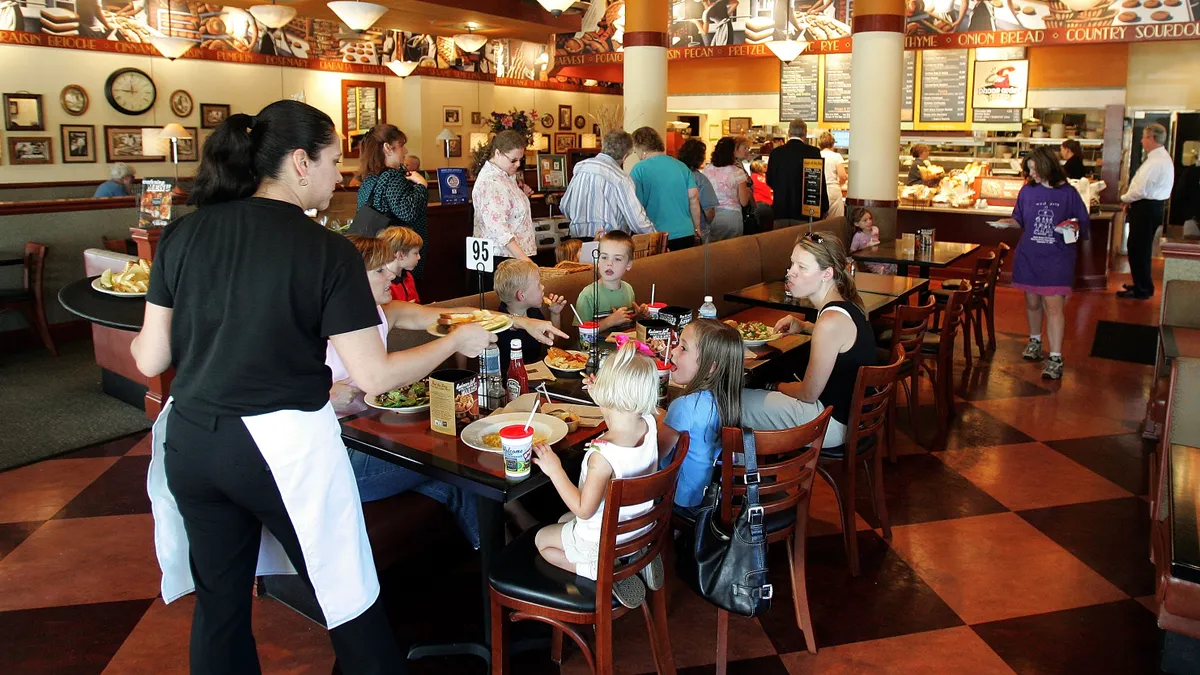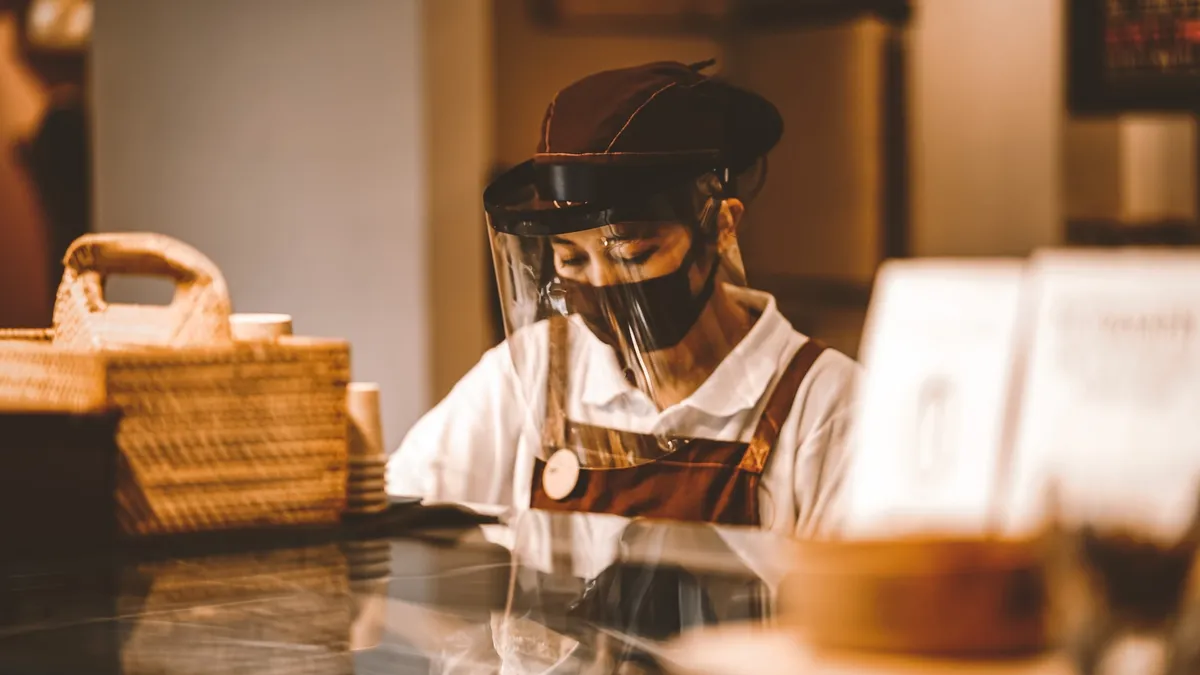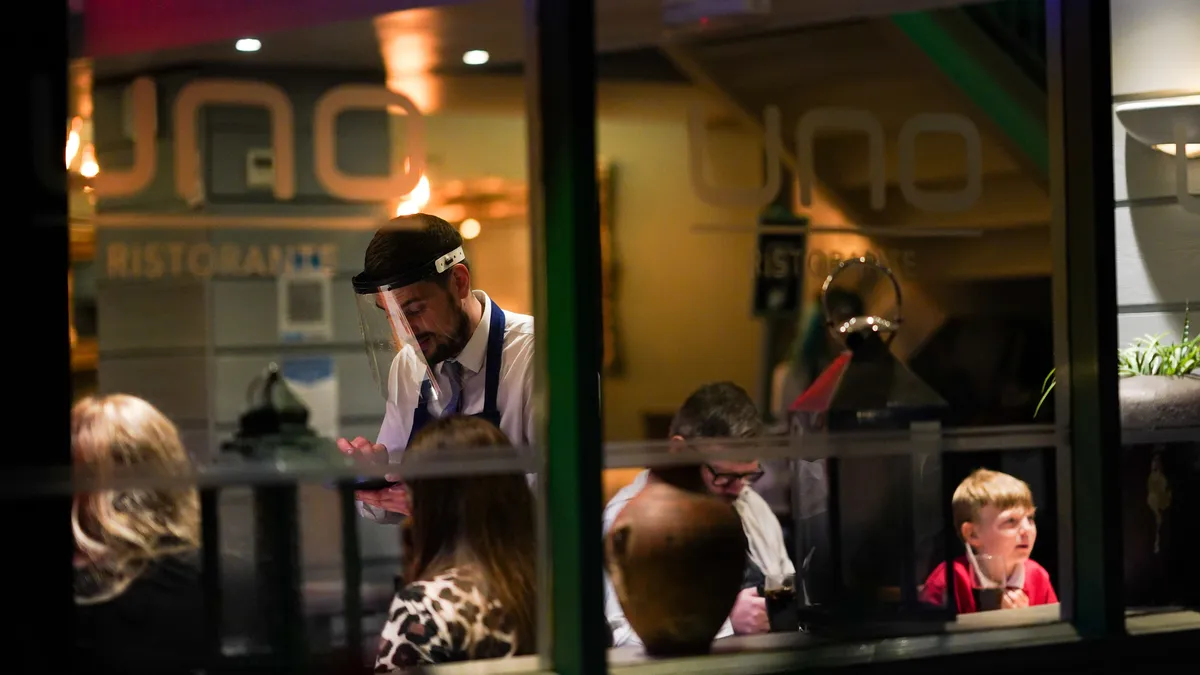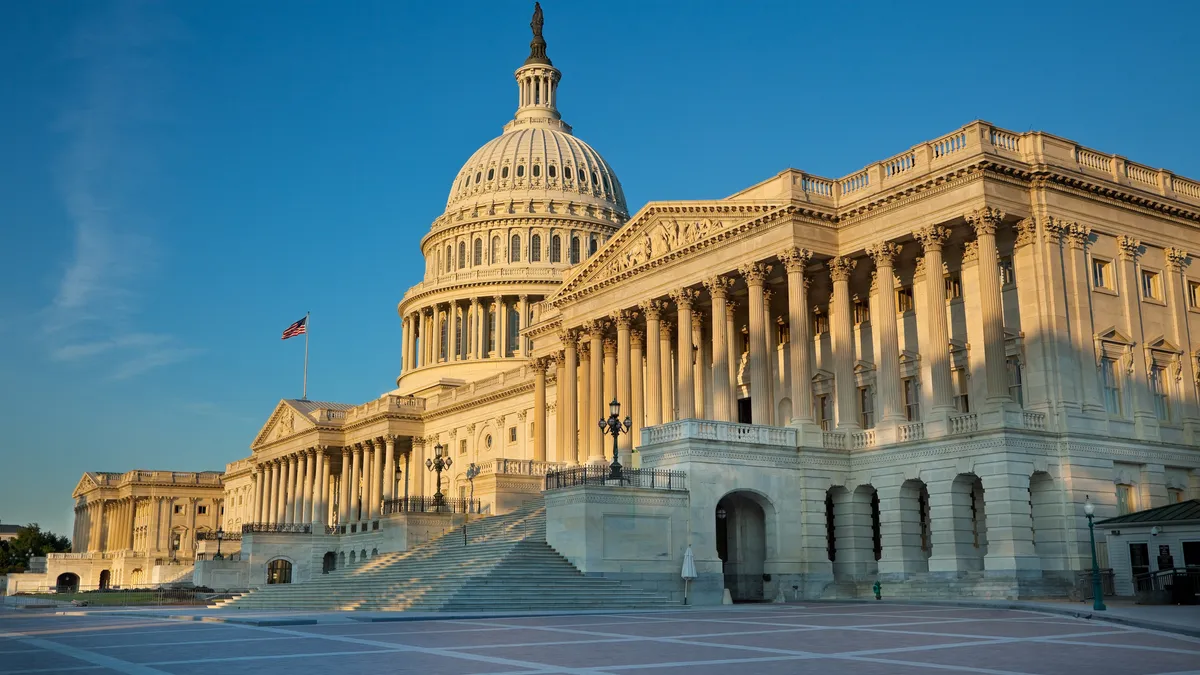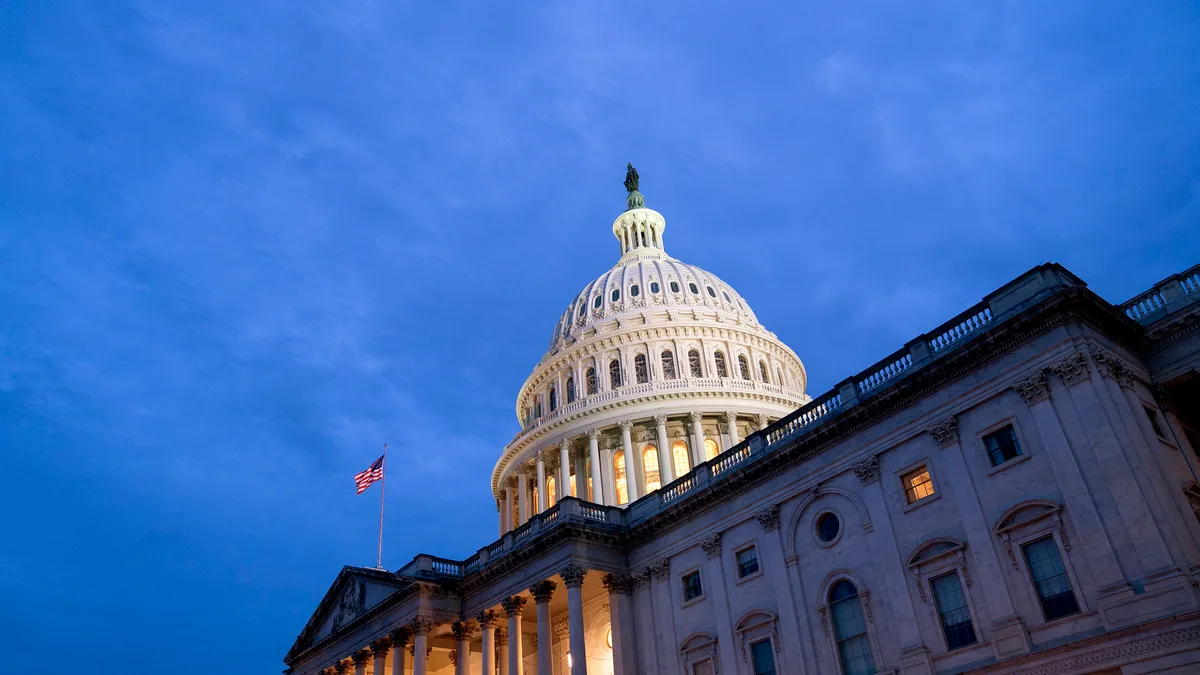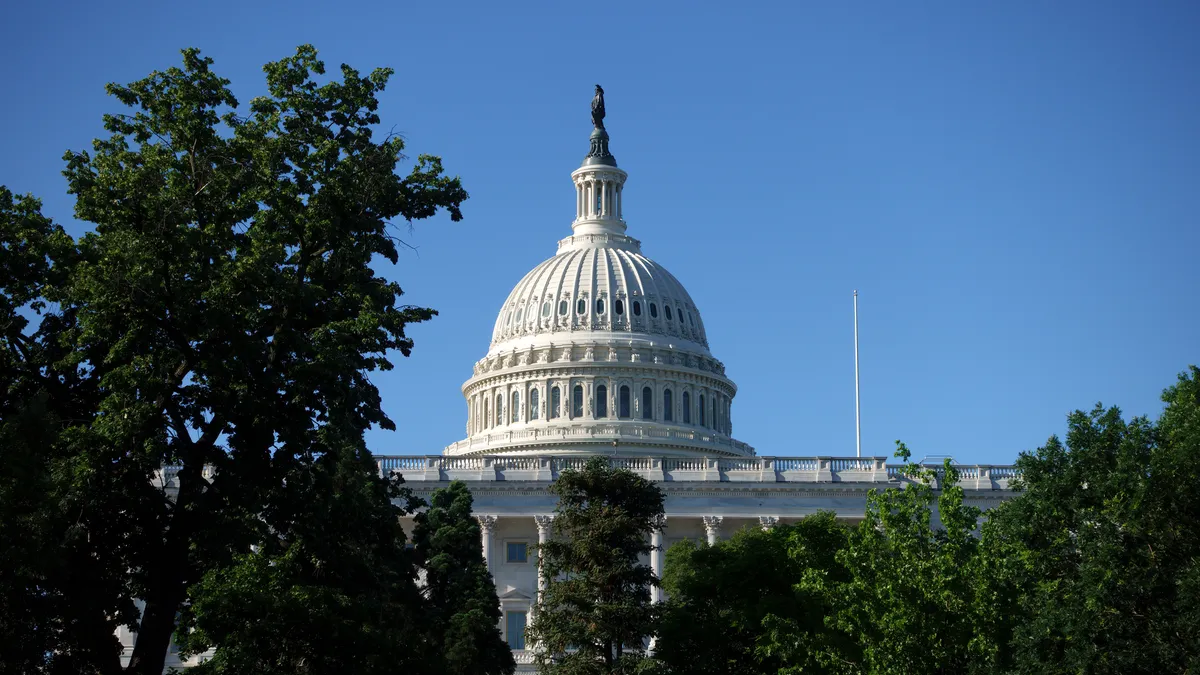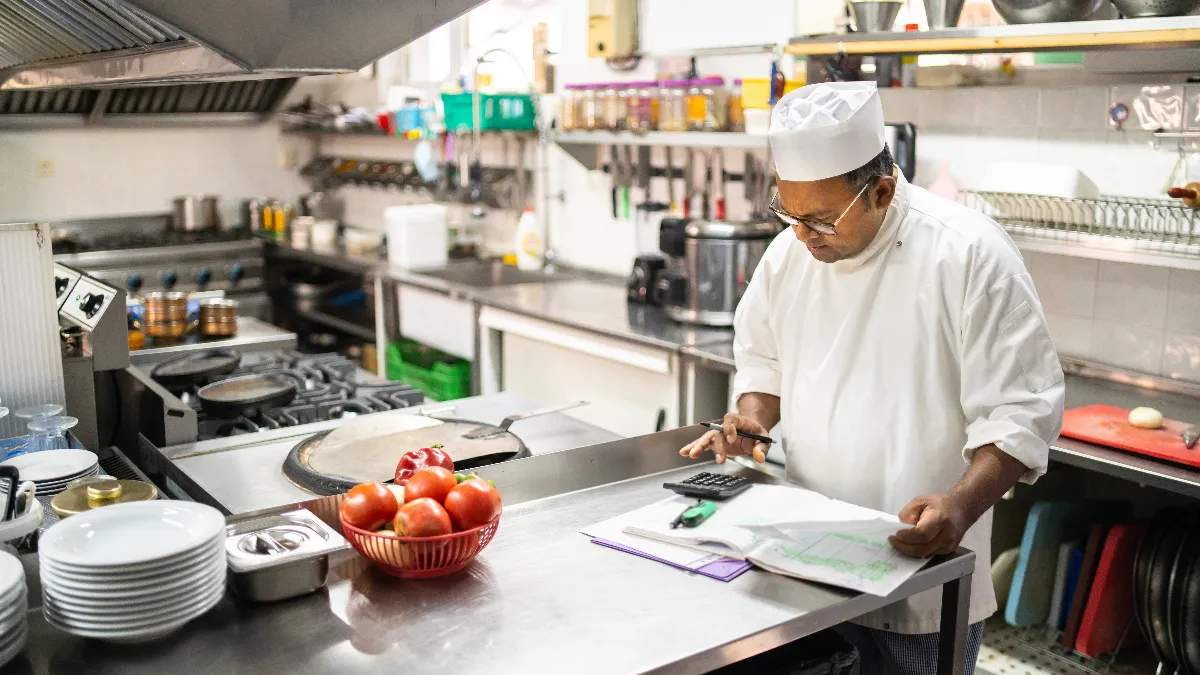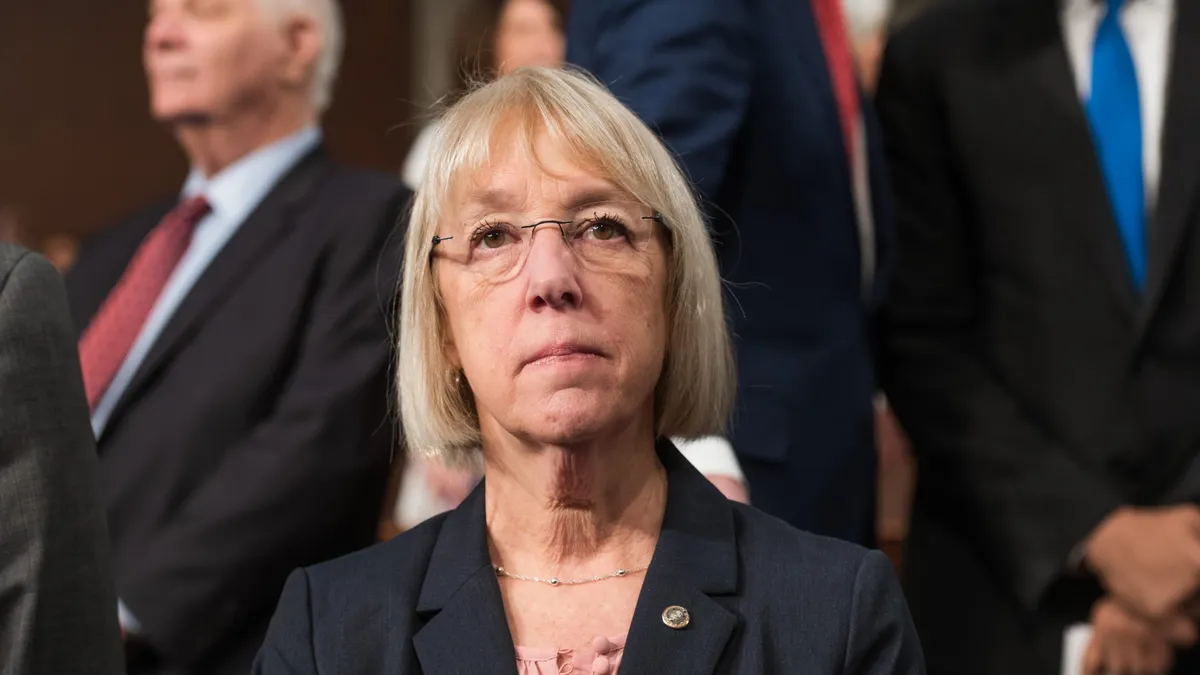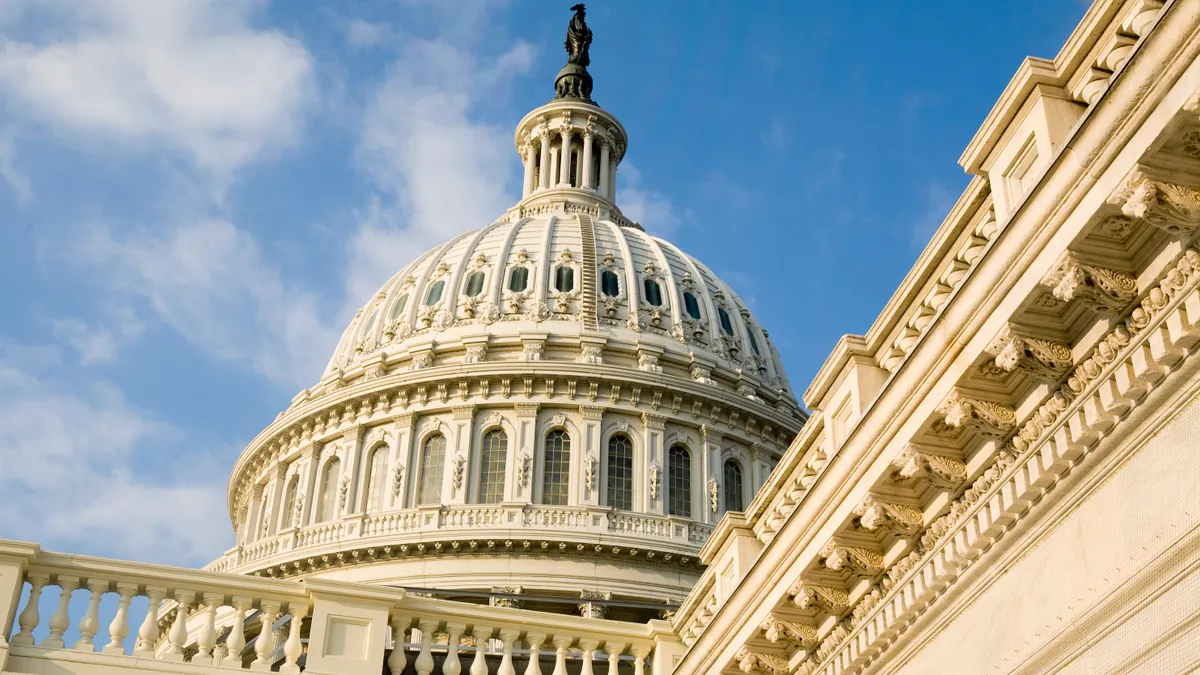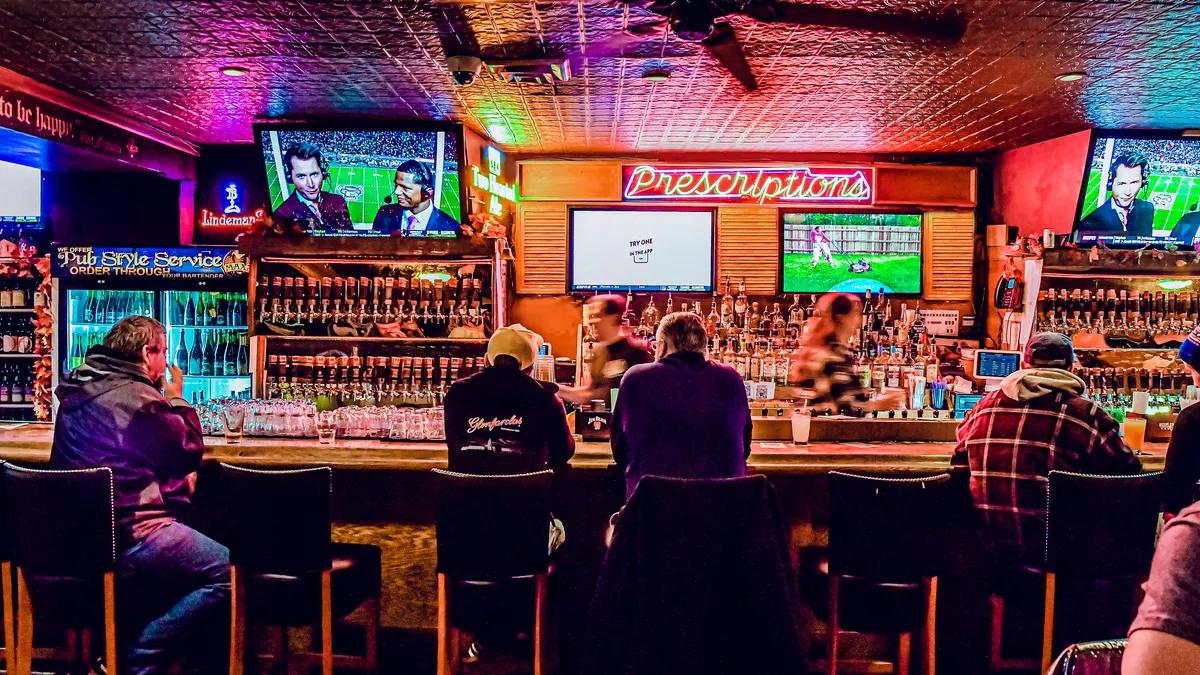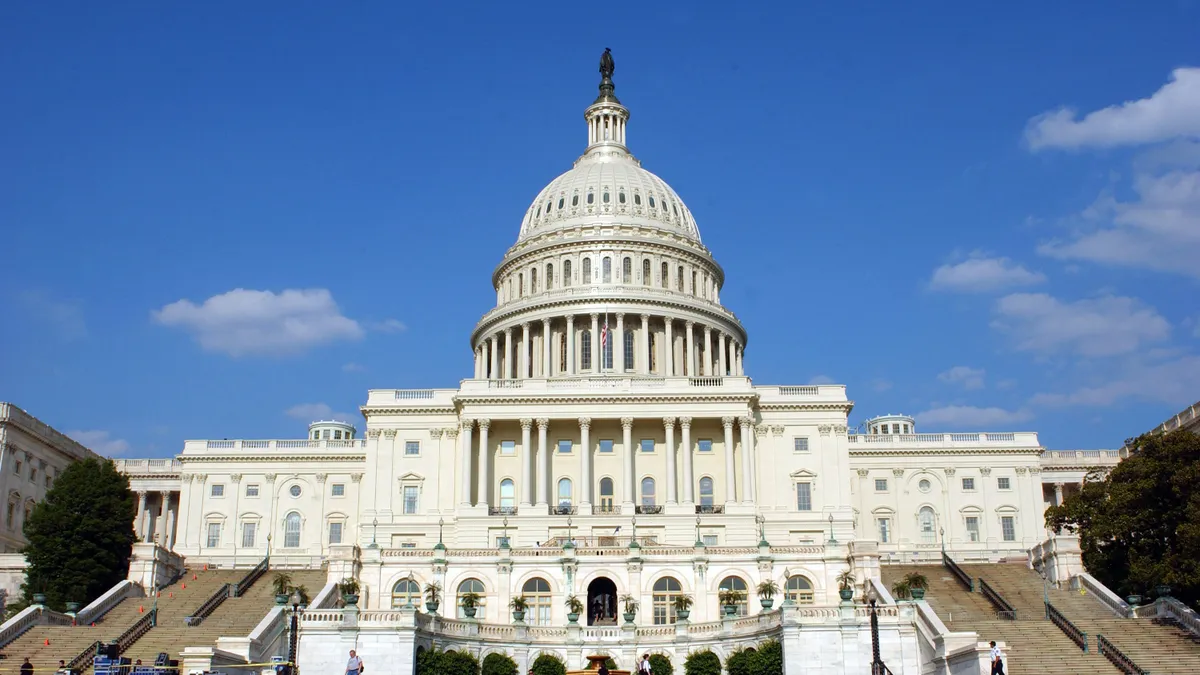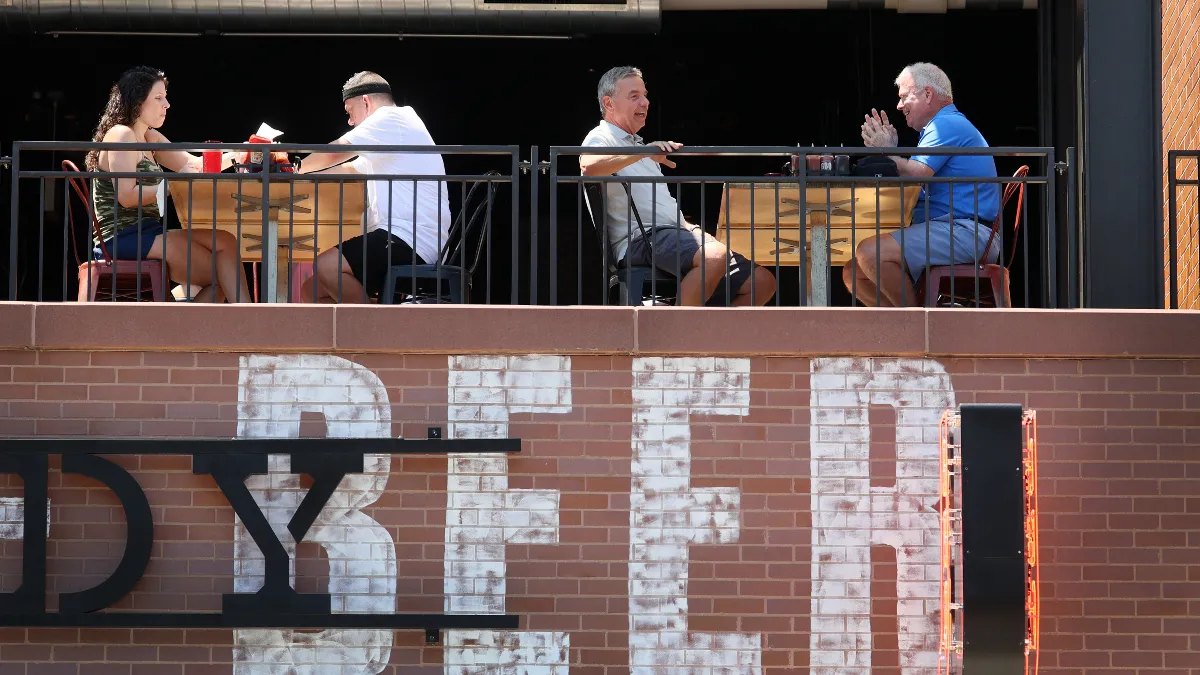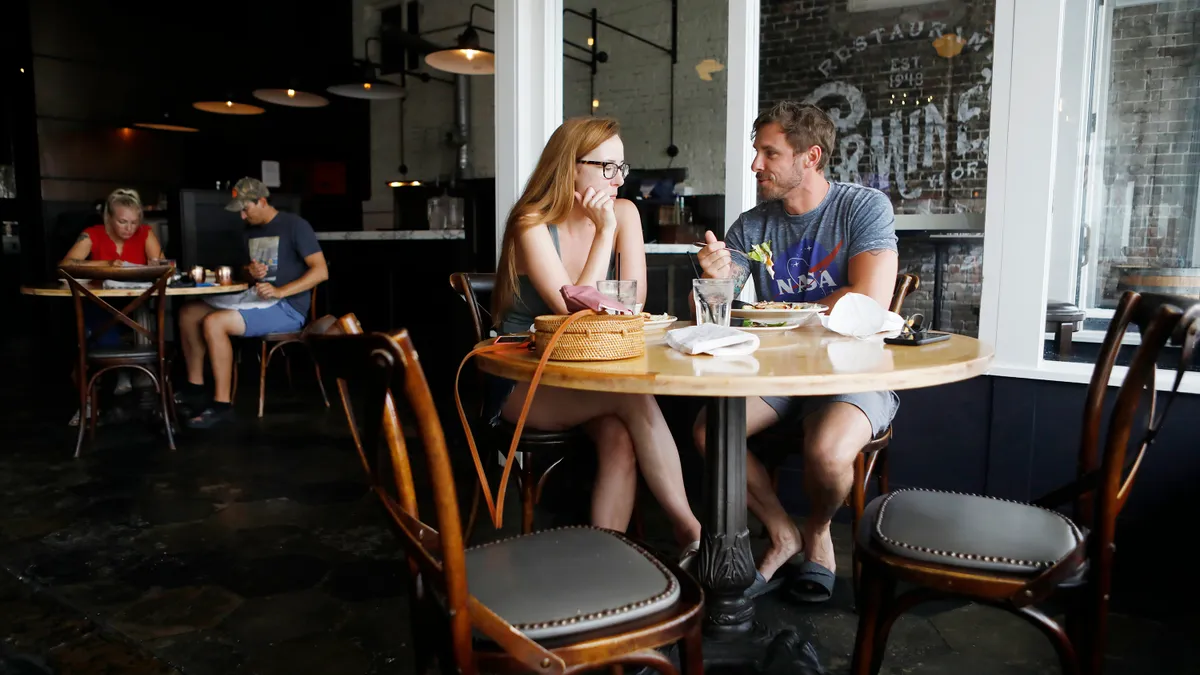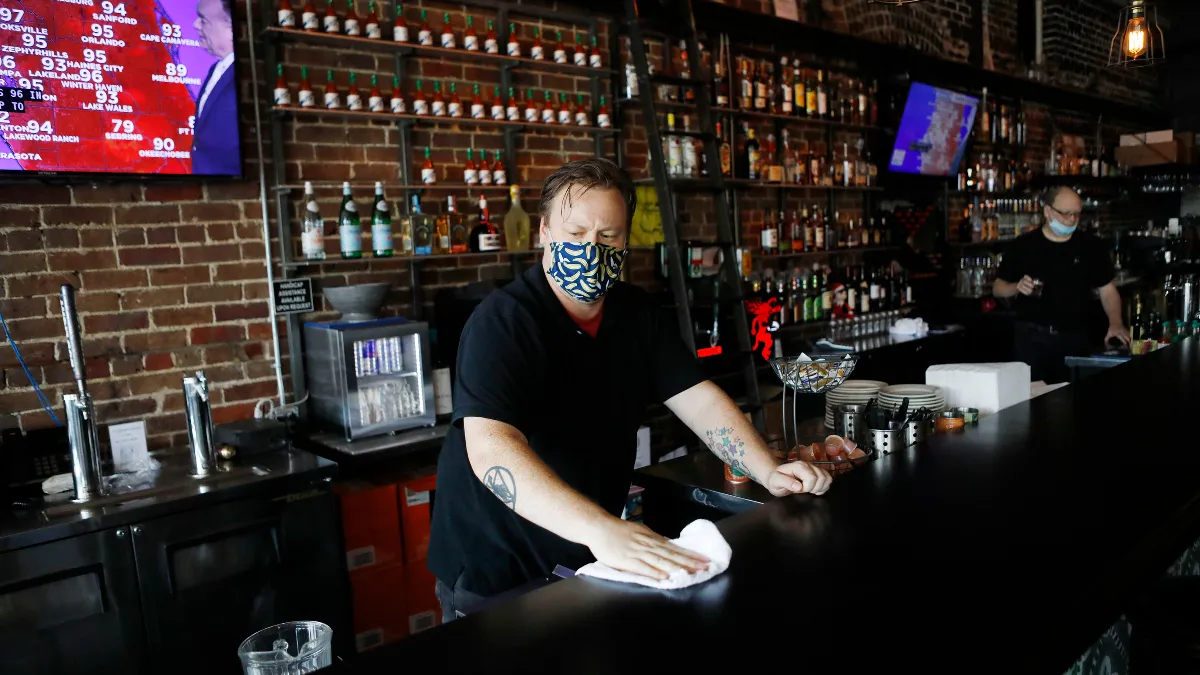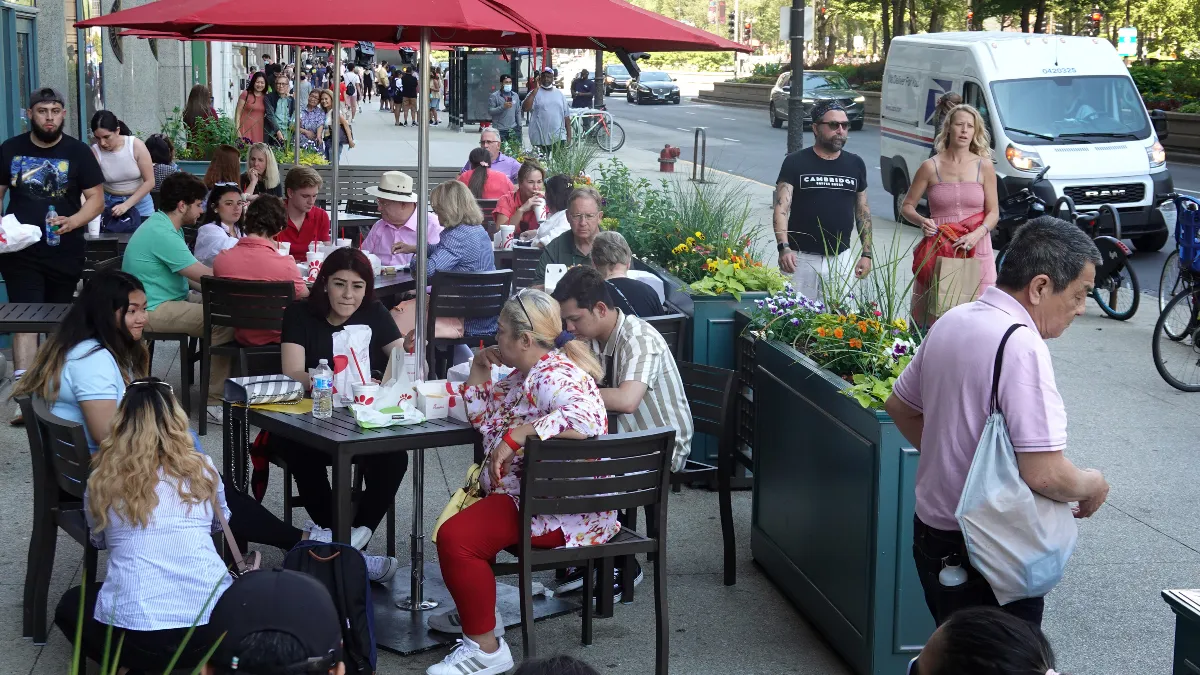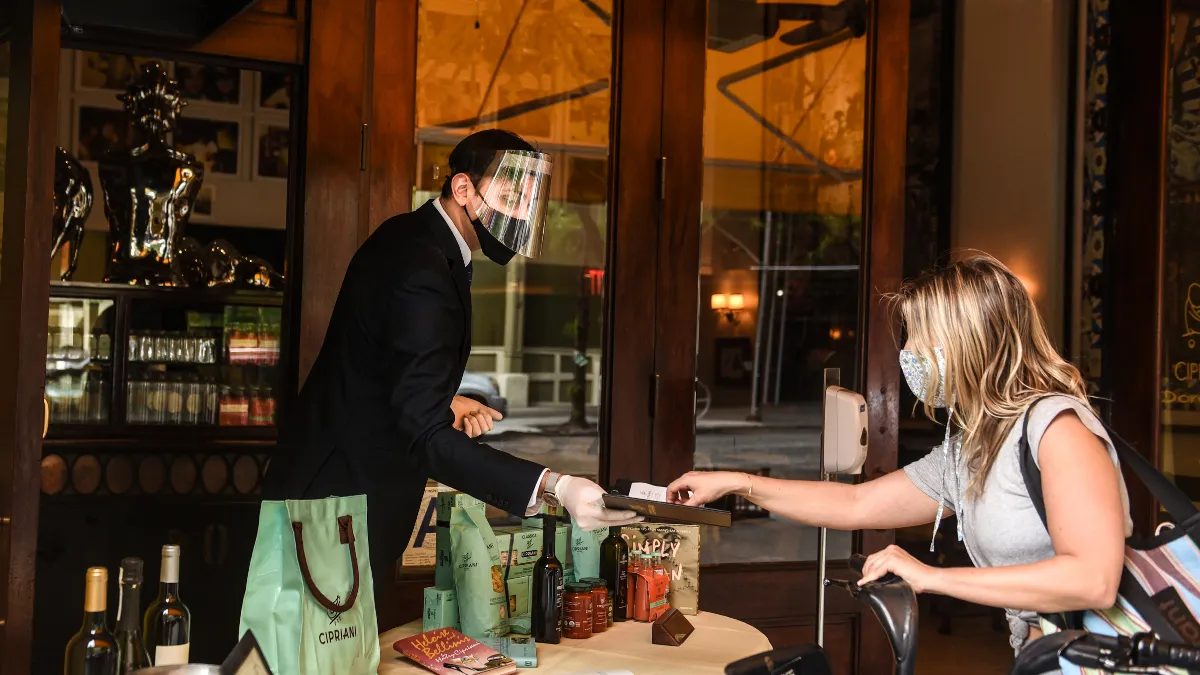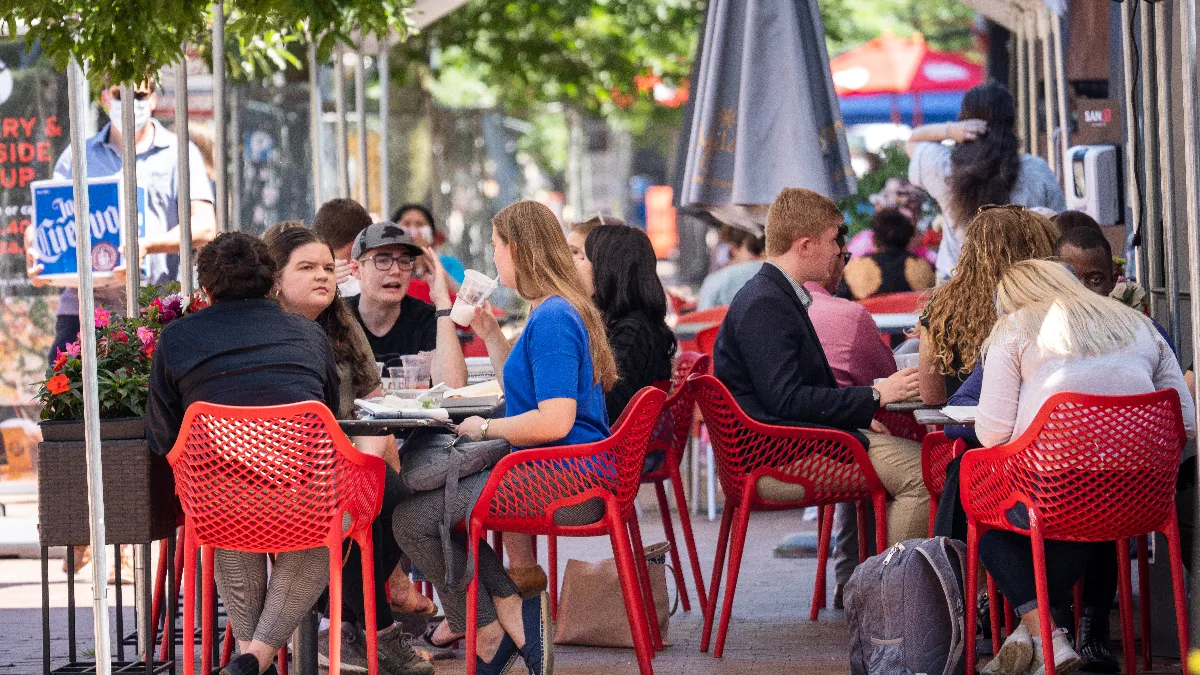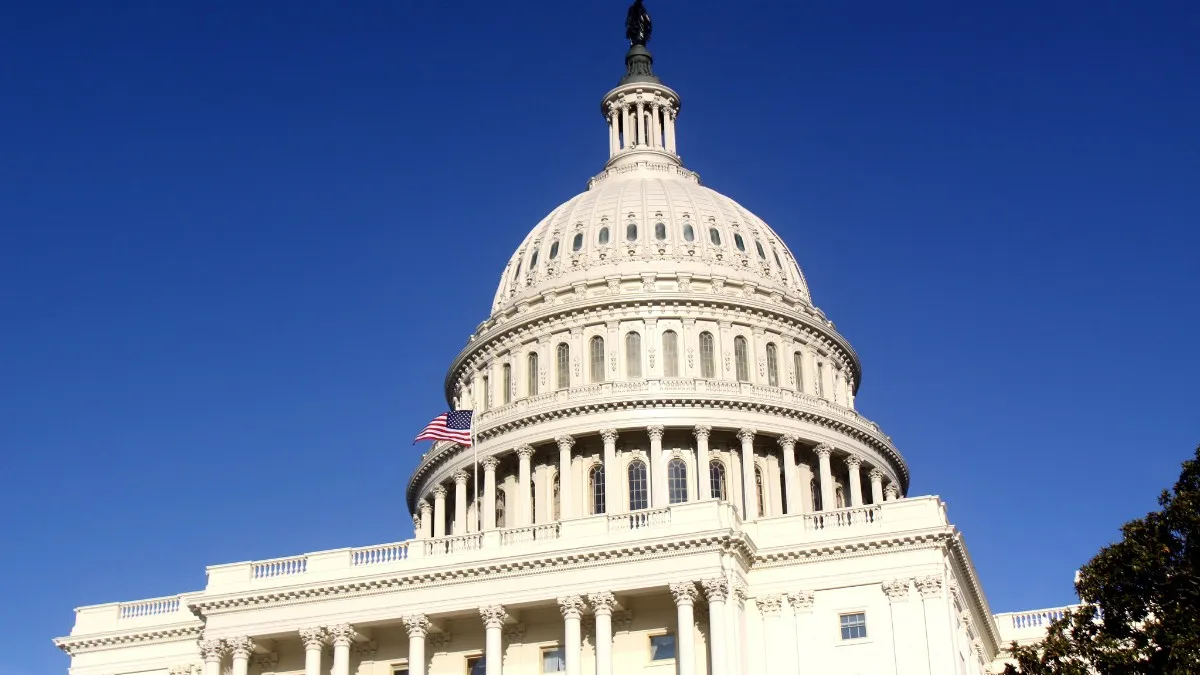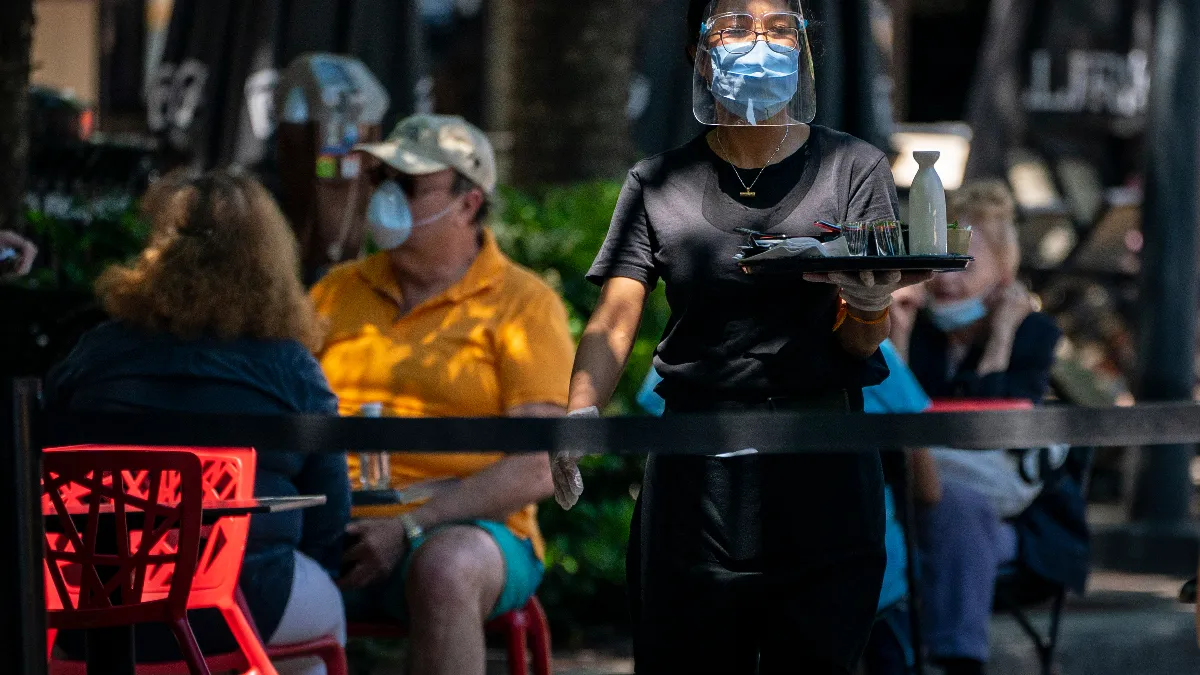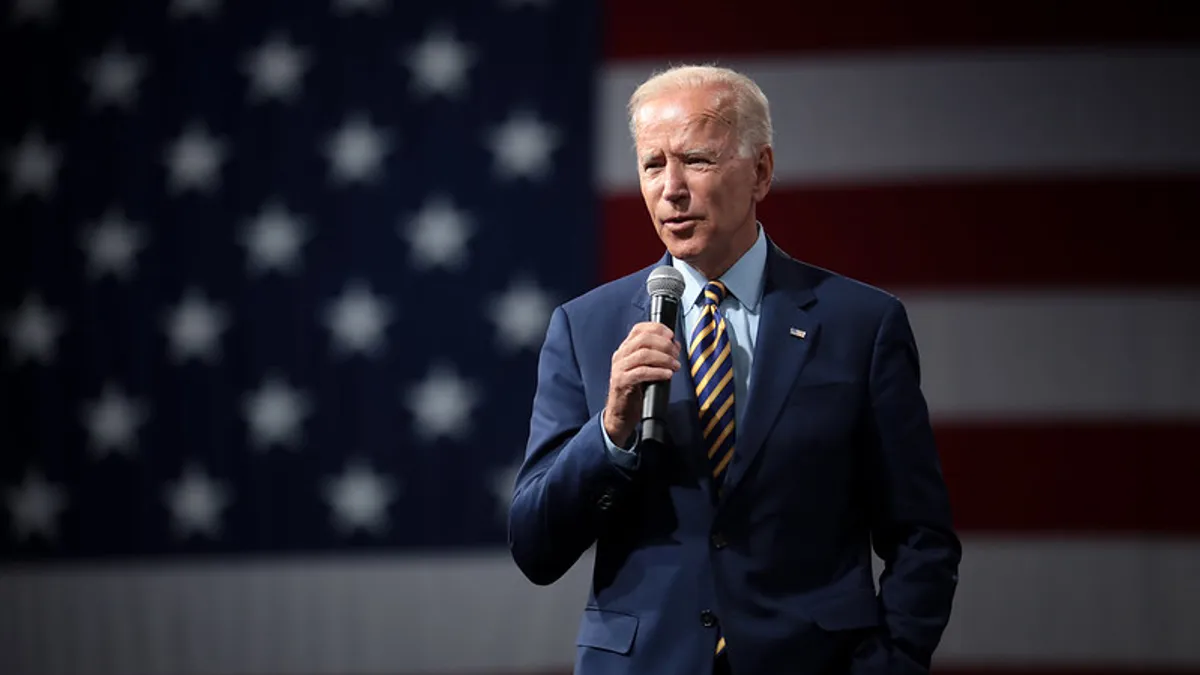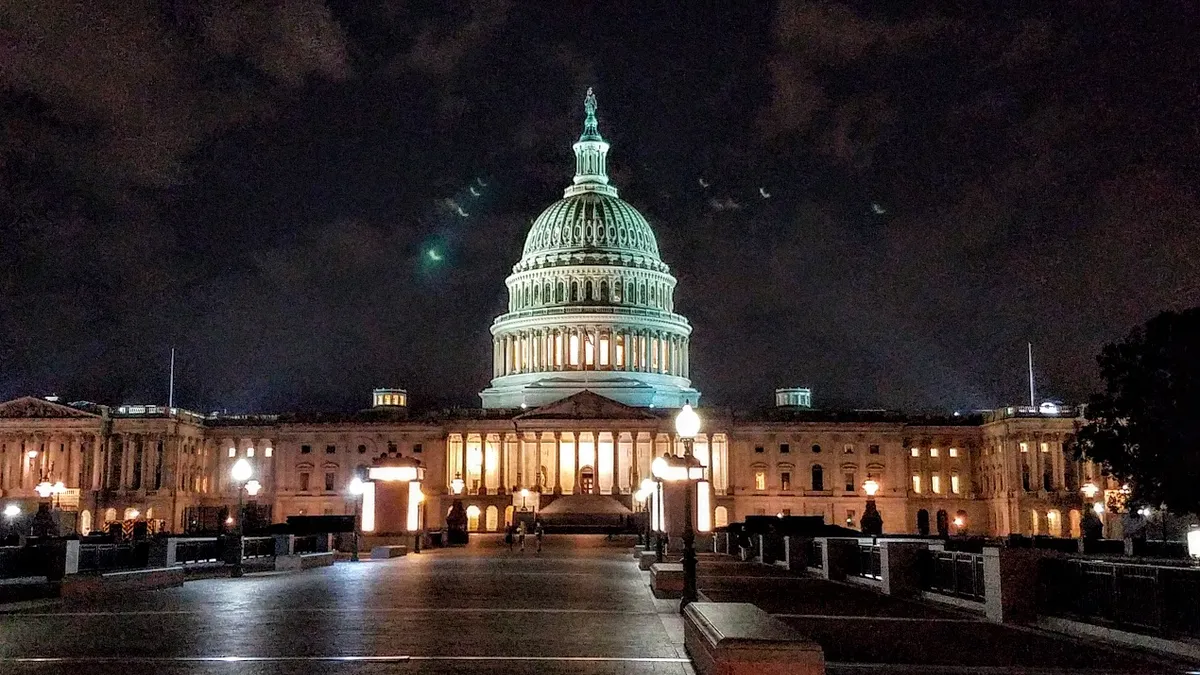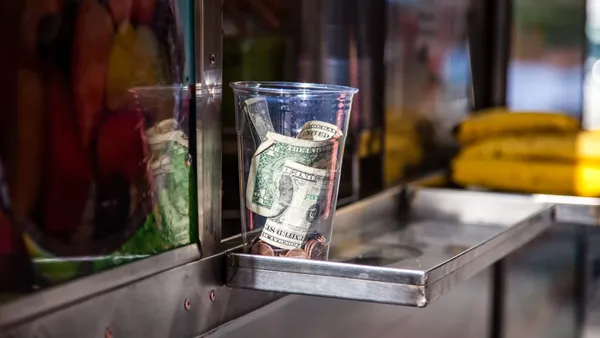UPDATE: April 6, 2022: Sen. Benjamin Cardin (D-MD) introduced a bill similar to the one before the House Tuesday night. Cardin's bill, S.4008, would provide $40 billion in additional funding for the Restaurant Revitalization Fund. It includes greater auditing requirements for restaurant grants to prevent fraud, as well as new transparency and customer service provisions to ensure that SBA shares information.
The bill is co-sponsored by Sen. Roger Wicker (R-MS) and includes additional funds for gyms, live venues and transit systems, among other business categories.
Dive Brief:
- The Relief for Restaurants and Other Hard Hit Small Businesses Act of 2022 (H.R. 3807), which would refill the Restaurant Revitalization Fund with $42 billion, was reintroduced in a Rules Committee meeting in the House of Representatives on Tuesday. The bill would also put $13 billion toward other businesses impacted by the COVID-19 crisis. Originally, the bill called for a $60 billion refill of the fund.
- The House is expected to vote on the bill, which has a mix of 234 Democratic and Republican sponsors, this week.
- H.R. 3807 was originally introduced in June 2021. Its reintroduction comes as the restaurant industry nears the one-year anniversary of the Small Business Administration's closure of the RRF. Nearly 200,000 businesses applied for but didn't receive RRF funds last year, according to the Independent Restaurant Coalition.
Dive Insight:
If H.R. 3807 passes the House and then the Senate, it would be a massive victory for restaurants that are struggling to shake the effects of past dining room restrictions as they navigate supply chain shortages, surging inflation and a historic labor shortfall.
The 177,000 restaurants that applied but didn't receive RRF funding represent around 20% of the industry, according to the National Restaurant Association, suggesting another round of restaurant-specific federal grants could improve the industry's recovery.
Ninety-six percent of RRF recipients said the grant made it more likely that their business would survive. By contrast, almost half of restaurants that didn't receive RRF funding said it's unlikely they will survive the pandemic, and 94% reported an RRF grant would allow them to retain or rehire staff, according to NRA research.
"After navigating an unpredictable supply chain, multiple COVID-19 surges, and dealing with revenue-hampering restrictions, these businesses have two years of crushing debt," Erika Polmar, the IRC's executive director, said in a statement. "We hear from restaurants and bars owners each day who applied for a grant and never received one. They are on the verge of closing permanently as a result."
The NRA wrote a letter to Congress on Monday urging policymakers to pass legislation that would refill the fund.
"With the looming threat of another variant and growing challenges of inflation for both operators and consumers, the economic boost RRF will provide for those 177,000 restaurants would reach far into our communities," Sean Kennedy, NRA's executive vice president of public affairs, wrote in the letter. "This should be the driving factor in bipartisan support for replenishing the RRF. These restaurants fighting for survival cannot go it alone any longer, and should not be treated as a spot in the rear-view mirror of Congress."
A similar attempt to refill the RRF was left out of the omnibus spending bill earlier this year.



